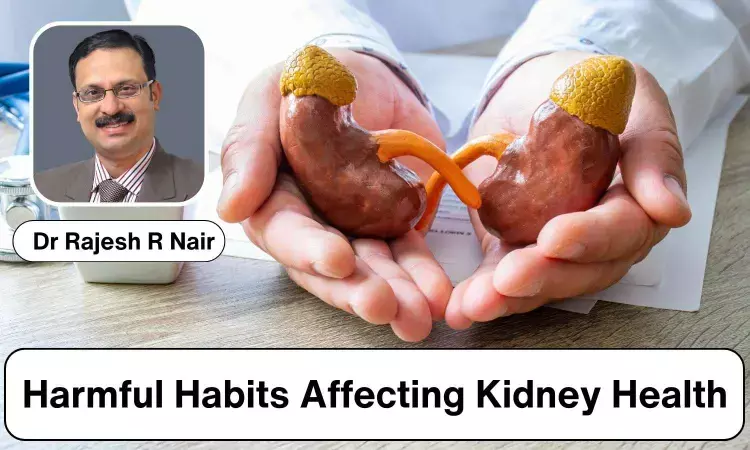- Home
- Medical news & Guidelines
- Anesthesiology
- Cardiology and CTVS
- Critical Care
- Dentistry
- Dermatology
- Diabetes and Endocrinology
- ENT
- Gastroenterology
- Medicine
- Nephrology
- Neurology
- Obstretics-Gynaecology
- Oncology
- Ophthalmology
- Orthopaedics
- Pediatrics-Neonatology
- Psychiatry
- Pulmonology
- Radiology
- Surgery
- Urology
- Laboratory Medicine
- Diet
- Nursing
- Paramedical
- Physiotherapy
- Health news
- Fact Check
- Bone Health Fact Check
- Brain Health Fact Check
- Cancer Related Fact Check
- Child Care Fact Check
- Dental and oral health fact check
- Diabetes and metabolic health fact check
- Diet and Nutrition Fact Check
- Eye and ENT Care Fact Check
- Fitness fact check
- Gut health fact check
- Heart health fact check
- Kidney health fact check
- Medical education fact check
- Men's health fact check
- Respiratory fact check
- Skin and hair care fact check
- Vaccine and Immunization fact check
- Women's health fact check
- AYUSH
- State News
- Andaman and Nicobar Islands
- Andhra Pradesh
- Arunachal Pradesh
- Assam
- Bihar
- Chandigarh
- Chattisgarh
- Dadra and Nagar Haveli
- Daman and Diu
- Delhi
- Goa
- Gujarat
- Haryana
- Himachal Pradesh
- Jammu & Kashmir
- Jharkhand
- Karnataka
- Kerala
- Ladakh
- Lakshadweep
- Madhya Pradesh
- Maharashtra
- Manipur
- Meghalaya
- Mizoram
- Nagaland
- Odisha
- Puducherry
- Punjab
- Rajasthan
- Sikkim
- Tamil Nadu
- Telangana
- Tripura
- Uttar Pradesh
- Uttrakhand
- West Bengal
- Medical Education
- Industry
Harmful Habits Affecting Kidney Health in Young Adults & Children - Dr Rajesh R Nair

Often underestimated in their significance, the kidneys play a pivotal role in maintaining overall health. Tasked with filtering waste, regulating blood pressure, and producing essential hormones, these organs are indispensable for our well-being.
Nevertheless, certain habits among young adults and children could threaten kidney health if not addressed.
1. Sedentary Lifestyle and Dehydration Concerns
Modern advancements have led to increasingly sedentary lifestyles among the youth. This lack of physical activity adversely impacts cardiovascular health and kidney function. Engaging in regular exercise is imperative for maintaining healthy blood pressure levels and adequate blood circulation, vital for optimal kidney function.
Furthermore, inadequate hydration, often substituted with sugary or caffeinated beverages, can lead to chronic dehydration, imposing strain on the kidneys over time.
2. Excessive Consumption of Salt and Processed Foods
The convenience of processed and fast foods has become a norm in the diets of many young individuals. These foods are typically laden with salt, which elevates blood pressure and burdens the kidneys.
Moreover, excessive salt intake is associated with the formation of kidney stones, a painful condition that warrants attention to prevent further complications.
3. Overindulgence in Sugary Products
The widespread availability of sugary snacks and drinks poses another risk to kidney health. High sugar intake is closely linked to obesity and diabetes, both significant risk factors for kidney disease. Additionally, sugary beverages can contribute to the formation of kidney stones and escalate the risk of chronic kidney ailments.
4. Smoking and Substance Misuse
Tobacco and substance abuse among young adults carry grave repercussions for kidney health. Smoking damages blood vessels, including those in the kidneys, amplifying the risk of kidney disease. Similarly, illicit drug usage or excessive alcohol consumption can impede kidney function and inflict long-term damage.
5. Neglecting Regular Health Check-ups
Routine health check-ups are imperative for the early detection and prevention of kidney-related issues. However, many young individuals overlook these check-ups, delaying the diagnosis of potential kidney problems. Early detection facilitates timely intervention and management, potentially averting further kidney damage.
Preserving kidney health is indispensable for overall well-being, necessitating young adults and children to adopt healthy habits early to forestall future complications.
Prioritizing regular exercise, adequate hydration, a balanced diet low in salt and sugar, abstinence from tobacco and substance abuse, and scheduling routine health check-ups are crucial to safeguarding kidney health.
Educating and raising awareness about habits detrimental to kidneys empower young individuals to make informed choices and prioritize their kidney health.
Disclaimer: The views expressed in this article are of the author and not of Medical Dialogues. The Editorial/Content team of Medical Dialogues has not contributed to the writing/editing/packaging of this article.
Dr Rajesh R Nair MBBS, MD, DNB, DM (Nephrology) FRCP (Lon), FRCP (Edin) is the Professor and Head of Nephrology and Kidney Transplantation Services at Amrita Institute of Medical Sciences, Kochi, with 18 years of experience of teaching experience in Nephrology. His special areas of interest include chronic kidney disease, kidney transplantation, transplant immunology, research, and management. Dr Nair is a member of Indian and International Society of Nephrology, European Dialysis and Transplant Association as well as American Society of Nephrology. He is a regular peer reviewer of manuscripts of Indian Journal of Nephrology. Dr Nair was recently awarded Fellowships from Royal College of Physicians, London and Edinburgh.


